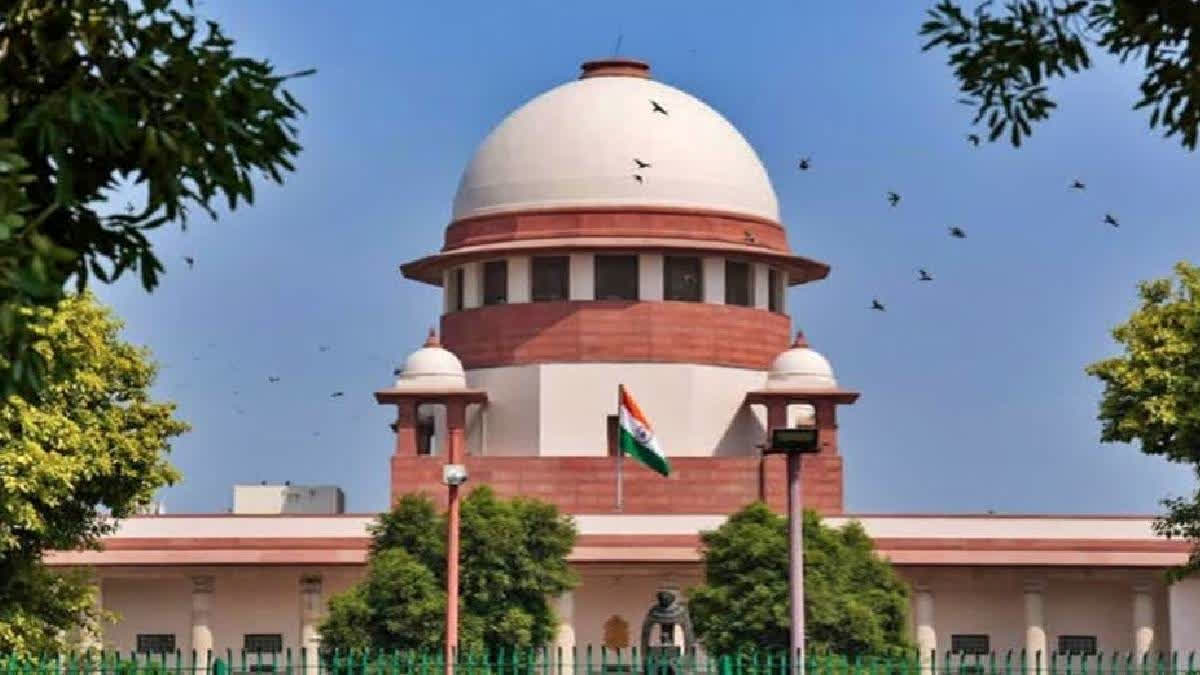New Delhi: The Supreme Court has said that the Protection of Women from Domestic Violence Act, 2005, which is a civil code, for a more effective protection of rights guaranteed under the Constitution, is applicable to every woman across the country irrespective of her religious affiliation or social background.
In a judgment delivered on September 10, a bench comprising Justices B V Nagarathna and N Kotiswar Singh said in order to protect women victims of domestic violence, occurring in a domestic relationship, the 2005 legislation is applicable to all women.
"The Act is a piece of civil code which is applicable to every woman in India irrespective of her religious affiliation and/or social background for a more effective protection of her rights guaranteed under the Constitution and in order to protect women victims of domestic violence occurring in a domestic relationship," said Justice Nagarathna.
The apex court’s judgment came on an appeal filed by a woman challenging an order of the Karnataka High Court in a matter connected with maintenance and compensation.
"The orders of the High Court as well as the first appellate court are set aside and the application filed by the respondent is dismissed”, said the bench. "However, liberty is reserved to the respondent (man) herein to file a fresh application under section 25 of the Act, if so advised," said the bench.
In the present case, the appellant-wife had filed a petition under Section 12 of the Protection of Women from Domestic Violence Act, 2005. The petition, criminal miscellaneous, was allowed by the magistrate in February 2015, granting Rs.12,000/- per month as maintenance and Rs.1,00,000/ towards compensation.
At this stage, the respondent-husband did not let in any evidence in the said proceeding and being aggrieved by the order of the magistrate, he filed an appeal under Section 29 of the Act which was dismissed by the appellate court on the ground of delay. The aforesaid orders attained finality as they were not assailed by the husband. The husband filed an application under Section 25 of the Act before the magistrate, which deals with duration and alteration of orders, which was also dismissed.
He filed a criminal appeal under Section 29 of the Act before the appellate court and it was allowed and the matter was remanded to the magistrate with a direction to consider the application filed by the husband under Section 25 of the Act, by giving an opportunity to both the parties to adduce their evidence and to dispose of the same in accordance with the law.
The wife filed a criminal revision petition before the High Court, which was dismissed in April 2023, with a direction to the magistrate to consider the application filed by the husband under Section 25 of the Act, without being influenced by any observation made by the appellate court while disposing of criminal appeal. Aggrieved by the High Court order, the appellant-wife filed an appeal before the apex court.
The apex court said: "The magistrate while exercising his discretion under Section 25(2) of the Act has to be satisfied that a change in the circumstances has occurred, requiring to pass an order of alteration, modification or revocation".
The bench said the magistrate has to adjudge the change in the circumstances based on the material put forth by the parties in a case and having regard to the circumstances of the said case.
The bench said, under the Act, a change in the circumstances may be of either a pecuniary nature, such as a change in the income of the respondent or an aggrieved person, or it could be a change in other circumstances of the party paying or receiving the allowance which would justify an increase or decrease of the maintenance amount ordered by the magistrate.
"For example, a change in the financial circumstances of the husband may be a vital criterion for alteration of maintenance but may also include other circumstantial changes in the husband or wife's life which may have taken place since the time maintenance was first ordered," said the bench.
The apex court said for the invocation of section 25(2) of the Act, there must be a change in the circumstances after the order being passed under the Act and an order for alteration, modification or revocation operates prospectively and not retrospectively.
"Under the Act, the order of alteration or modification or revocation could operate from the date of the said application being filed or as ordered by the Magistrate under Section 25(2) of the Act. Thus, the applicant cannot seek its retrospective applicability, so as to seek a refund of the amount already paid as per the original order”, said the bench.
Read More



